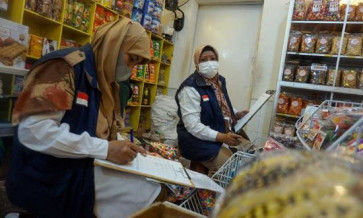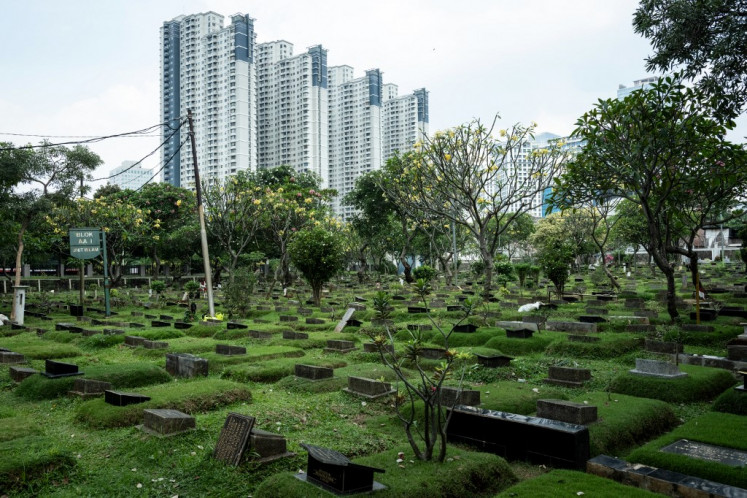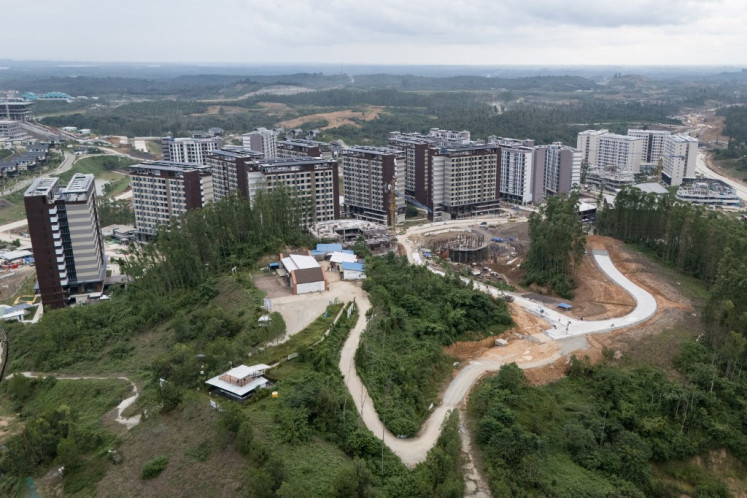Popular Reads
Top Results
Can't find what you're looking for?
View all search resultsPopular Reads
Top Results
Can't find what you're looking for?
View all search resultsRI ranks second lowest in renewable energy survey
Nonrenewable energy is at a crossroads in the minds of most people as there is a perception that its impacts outweigh its benefits, a recent multi-region sampling survey shows
Change text size
Gift Premium Articles
to Anyone
Nonrenewable energy is at a crossroads in the minds of most people as there is a perception that its impacts outweigh its benefits, a recent multi-region sampling survey shows.
Global independent climate change think tank Third Generation Environmentalism (E3G) recently conducted a survey on nonrenewable and renewable energy in six countries that received investment through China’s Belt and Road Initiative (BRI).
The countries, comprising Indonesia, Pakistan, the Philippines, South Africa, Turkey and Vietnam, were asked five questions. More than 1,000 respondents participated in each country.
The survey was conducted April 9 and 17 involving online interviews administered by members of the international full-service market research agency YouGov Plc MENA.
E3G chief executive Nick Mabey said the survey showed that there was a strong preference for clean energy rather than coal to best support each country’s long-term development goals.
“The energy choices made now will have a long-term impact on economic development and citizens' welfare. International investors, including actors under BRI, should take note that citizens want clean energy, not coal,” he is quoted on the E3G official website as saying.
The result for Indonesia, for which the total sample size was 1,003 adults, also revealed a positive perception toward renewable energy. However, it ranked second lowest among the six countries surveyed. Indonesia ranked fifth with 65 percent on the question of whether it was better to invest in renewable energy for long-term development. Vietnam ranked first with 89 percent and Turkey second with 86 percent, followed by South Africa with 80 percent and the Philippines with 78 percent.
Last place went to Pakistan with only 61 percent favoring investment in renewable energy, 25 percent in coal and 14 percent undecided.
“Vietnam had the highest percentage [of respondents], while Indonesia had 65 percent, with 28 percent still thinking that investment in coal, oil and gas is better,” Center for Energy Research Asia (CERA) director Adhityani Putri said recently.
It was CERA that presented and explained the E3G perception survey to the media in Indonesia.
Solar Power generated much of the respondents' attention, with more than 60 percent thinking the government should focus on the energy source, followed by wind, hydro, nuclear and coal, respectively.
“Clean energy in Indonesia is associated with solar, wind and hydropower. These require major investment. Meanwhile, nuclear and coal energy is considered medium to low [investment],” Adhityani said.
She also pointed out one unique result of Indonesia in the survey, which was the perception of the relationship between corruption and the coal industry.
The question asked what words or phrases a respondent associated with foreign investment in coal power, with answers being multiple choice. “Investment in coal only increases air and water pollution [36 percent] and worsens climate change [37 percent],” she said in explaining responses.
“[But] their perception of the relationship between corruption and investment in coal power is low [at 16 percent]. It is probably because coverage of corruption cases mainly focuses on the people rather than the industry,”
One recent corruption case to hit the local coal sector was bribery involving the US$900 million Riau-1 power plant project, which is expected to be completed in 2024 with an installed capacity of 2 x 300 megawatts (MW).
State electricity firm PLN’s suspended president director, Sofyan Basir, is the latest person to be declared a suspect in the case, in which former social affairs minister Idrus Marham, lawmaker Eni Saragih, businessman Johannes B. Kotjo and coal mining company owner Samin Tan have also been implicated.
The Corruption and Eradication Commission (KPK) has summoned Energy and Mineral Resources Minister Ignasius Jonan as a witness in the case, but has yet respond.
The Energy and Mineral Resources Ministry targets the signing of 21 power purchase agreements (PPAs) on renewable energy power plants with total installed capacity of 795.12 MW, 620 MW of which will be from six geothermal power plants (PLTP).
Besides the PLTP, there are also agreements on seven mini-hydropower plants, two solar power plants, five waste-to-energy power plants and one biomass power plant.
The ministry’s director for new and renewable energy, Harris, said nine of the projects were from the 2018 plan while the remaining were new projects.
“They [prospective contractors] have to make an investment commitment at 10 percent of the project’s value before the PPA takes effect,” he said early May.
Fabby Tumiwa, the executive director from local energy watchdog Institute for Essential Services Reform (IESR), told The Jakarta Post that the 21 projects were not enough.
“It isn’t much in terms of quantity and capacity as they are mainly for PLTP. Most of the projects belong to PGE [Pertamina subsidiary in the geothermal business] and Geo Dipa Energi [state-owned geothermal energy firm],” he said recently.
As of December 2018, only 13 percent of the electricity produced in Indonesia was from renewable energy sources, while coal-powered electricity plants remain the main contributor with more than 50 percent of the total capacity at about 60 GW.
Indonesia’s electricity capacity from renewable energy stood at 9.32 GW or only 2 percent of its total potential of electricity from renewable energy at 442 GW, the latest Energy and Mineral Resources Ministry data shows.










